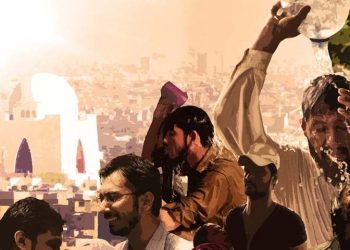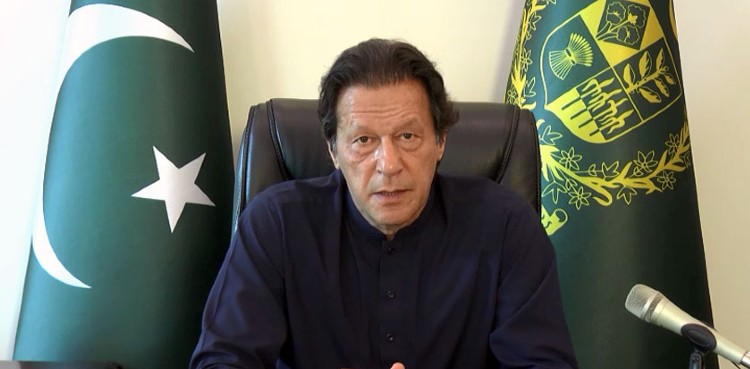Pakistan Tehreek-e-Insaf’s (PTI) senior leader Farrukh Habib Monday decided to part ways with Imran Khan and joined the Istehkam-e-Pakistan Party (IPP), lamenting the ex-prime minister’s policy of “violence”.
The IPP was formed on June 8 by estranged PTI leaders Tareen and Aleem Khan, who had left ex-PM’s party due to severe disagreements, while several Imran loyalists have also joined hands with them.
Habib, announcing the development during a press conference at the IPP’s head office in Lahore alongside the party’s top leadership, said the May 9 events were condemnable and he was taken aback by them. “It will be remembered as a dark day,” he said.
Habib, who was one of the pioneer members of PTI’s student organisation, said: “I wasn’t at my house for the past five months […] and for the last few weeks, I wasn’t even in contact with my family,” the former state minister for information told journalists.
“Since May 9, we did not face the law and were away from our houses. For the past five months, I was constantly pondering whether I joined politics for this reason?” he said.
This setback to PTI comes weeks after two prominent leaders, Sadaqat Ali Abbasi and Usman Dar, parted ways with the former ruling party due to the May 9 events.
PTI Chairman Imran was arrested in a graft case on May 9, triggering strong protests from the party across the country in which state installations were targetted.
A crackdown was then launched against those involved in the events, leading to the arrest of hundreds of party workers and leaders — including Vice Chairman Shah Mehmood Qureshi.
Slamming Imran’s narrative, Habib said PTI’s “war” with the state institutions was “not a war between believers and non-believers”, lamenting that the ex-premier brought the country to the verge of violence.
‘No peace’ after no-trust move
In the presser later, Habib mentioned that Imran’s government was removed through constitutional means, but the former prime minister did not accept the reality.
Imran was ousted as the prime minister through a no-confidence motion — backed by the Pakistan Democratic Movement — in April last year. But Imran kept he was removed from office through a US-backed “conspiracy”
Habib said after the no-trust vote, Imran did not let his party members sit peacefully. The ex-minister said instead of adopting a policy in line with the laws of the land, Imran preferred violence.
“Sometimes people become so emotional that they go far away from reality. I wanted to make Pakistan Quaid-e-Azam’s Pakistan, but we kept moving farther away from it. I kept asking myself the same question over and over again: what are we resorting to.”
“But instead of [promoting the struggle through ballot], Imran pushed people to opt bullet,” Habib said, noting that the ex-prime minister used people as human shields to avoid arrest on multiple occasions.
Cipher and Toshakhana
Moving on, the ex-state minister said on the cipher issue, a joint statement was issued after the National Security Committee meeting during Imran’s tenure.
“The statement mentioned that there was no conspiracy, but an intervention,” Habib said, slamming Imran for using the cable for his political motives and not thinking about national interest.
Imran, who was originally arrested in a graft case in May, is still behind bars in the cipher case as a court tries him for revealing details of the secret document.
Habib said that PTI leaders were made to defend Imran when it came to the Toshakhana case — in which he was disqualified by the Election Commission of Pakistan.
“We were made to defend the undefendable. We did not know that the PTI chairman has also taken watches from Toshakhana,” Habib said. He questioned Imran: “Whilst claiming high moral ground, how could you take watches from the Toshakhana?”
He said the PTI chairman, on the very first day when the controversy arose, should have said that he had bought watches from the Toshakhana.


















































